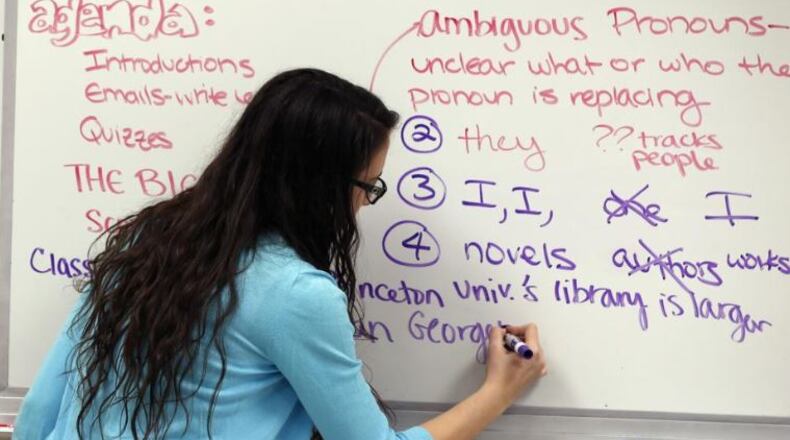Mark Twain said, “I never write ‘metropolis’ for seven cents when I can write ‘city’ and get paid the same.” He was no “educator.” They seem to be paid by the syllable.
If you believe the way we talk and write reflects and shapes how we think and clear thinking is good, the language of education could scare you.
Consider a few examples.
This year’s high school graduates are “the 2018 Four-Year Cohort Graduation Rate.” One district lamented “only 8% of two cohorts of students (Cohort 1 and Cohort 2) graded ‘on level’.”
If those off-level cohorts attack, don’t fear, educators know what to do. “We instantly get an alert,” one district spokesman said, “and we rush and go into protocol.” So much better than rushing into, say, panic.
“Rushing into protocol” may sound, to someone, businesslike. Education jargon slingers like corporate-speak.
A job description says substitute teachers “interact with customers, suppliers and employees as needed.” Are the children the customers, or the suppliers, providing the raw material? It also says, “Work actually performed by incumbents in this position may vary.” To become an incumbent, though, you need an “onboarding session.”
Colleges call certain students their “yield rate.”
A district hired an assistant superintendent to oversee "organizational design thinking capacity," citing his experience in "design thinking and Lean Startup methodologies" and "ensuring that every educator had high-quality curricular options and was competent in evidence-based instructional practices." Could mean good classes and teaching. He'll also seek "better outcomes for students."
“Outcomes” are big in eduspeak. As are acronyms.
A task force on teacher certification included “educator preparation providers” — colleges? — “Georgia Professional Standards Commission (GaPSC), Georgia Department of Education (GaDOE), Board of Regents, Professional Association of Georgia Educators (PAGE), Georgia Association of Educators (GAE) and local units of administration (LUAs).” There in one sentence, GaPSC, GaDOE, PAGE, GAE and LUAs.
"Social and emotional learning" is a popular educatorial concept. "We know that social and emotional learning (SEL) has a positive effect on student performance," one superintendent blogged. With bad SEL students might, as one district's "director of advisement" said, "experience suicidal ideation." So, more SEL is good advisement.
There's no advisement like federal advisement, which even covers "Education of Migratory Children." Maybe those kids are flying south to break free of the "coterminous boundaries" Atlanta's school system wants.
Here's U.S. DoED "clarity" on the latest school law: A "revised consolidated State plan template would require only descriptions, information, assurances and other materials that were 'absolutely necessary' for consideration of such a plan, consistent with ESEA section 8302(b)(3). … Therefore, an SEA may either submit a consolidated State plan using the revised consolidated State plan template or an alternative template that addresses each requirement in the revised template and that is developed by the State working with CCSSO."
It’s a good thing DoE folks, their website says, “are committed to writing documents in plain language.”
About the Author
Keep Reading
The Latest
Featured

